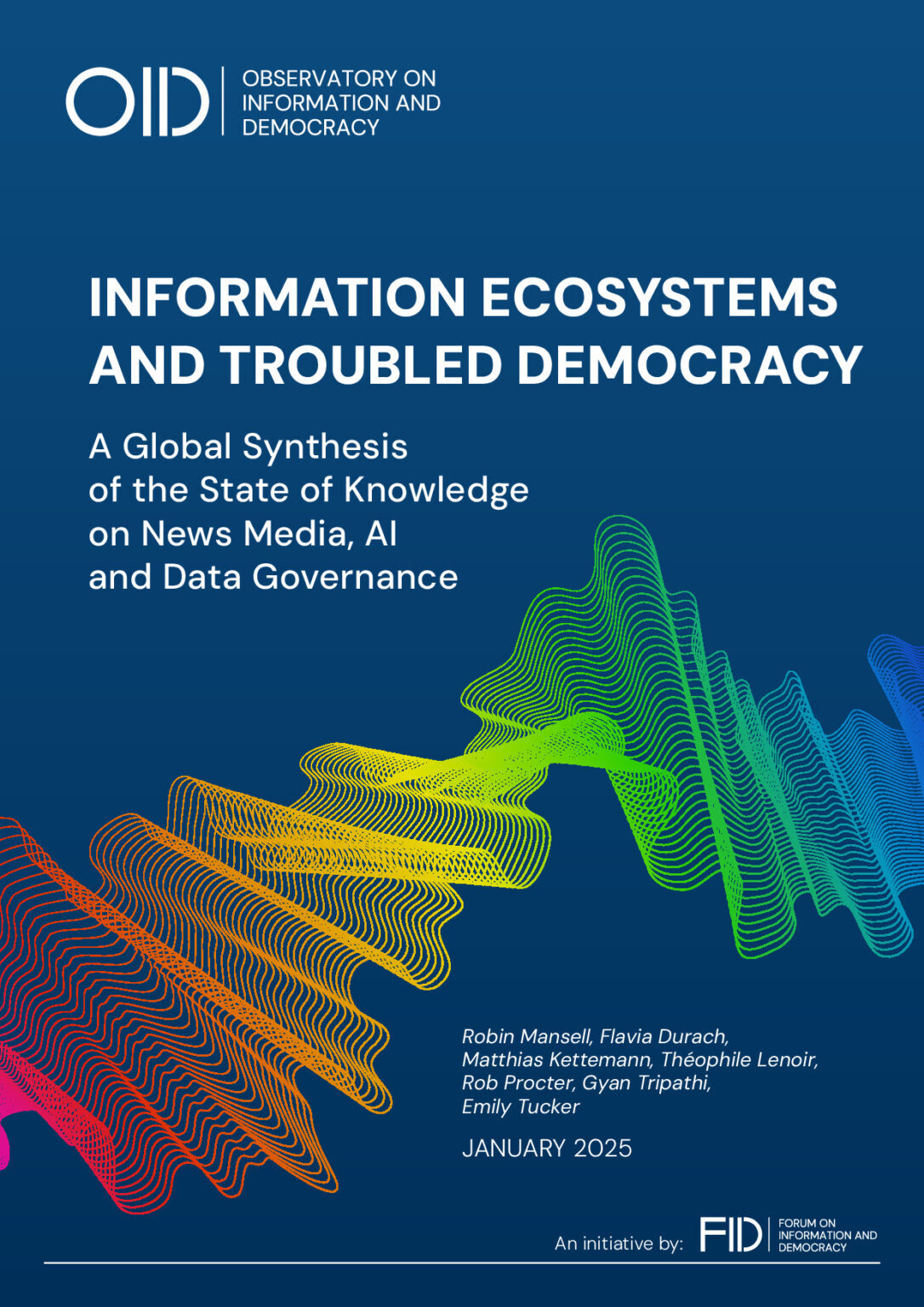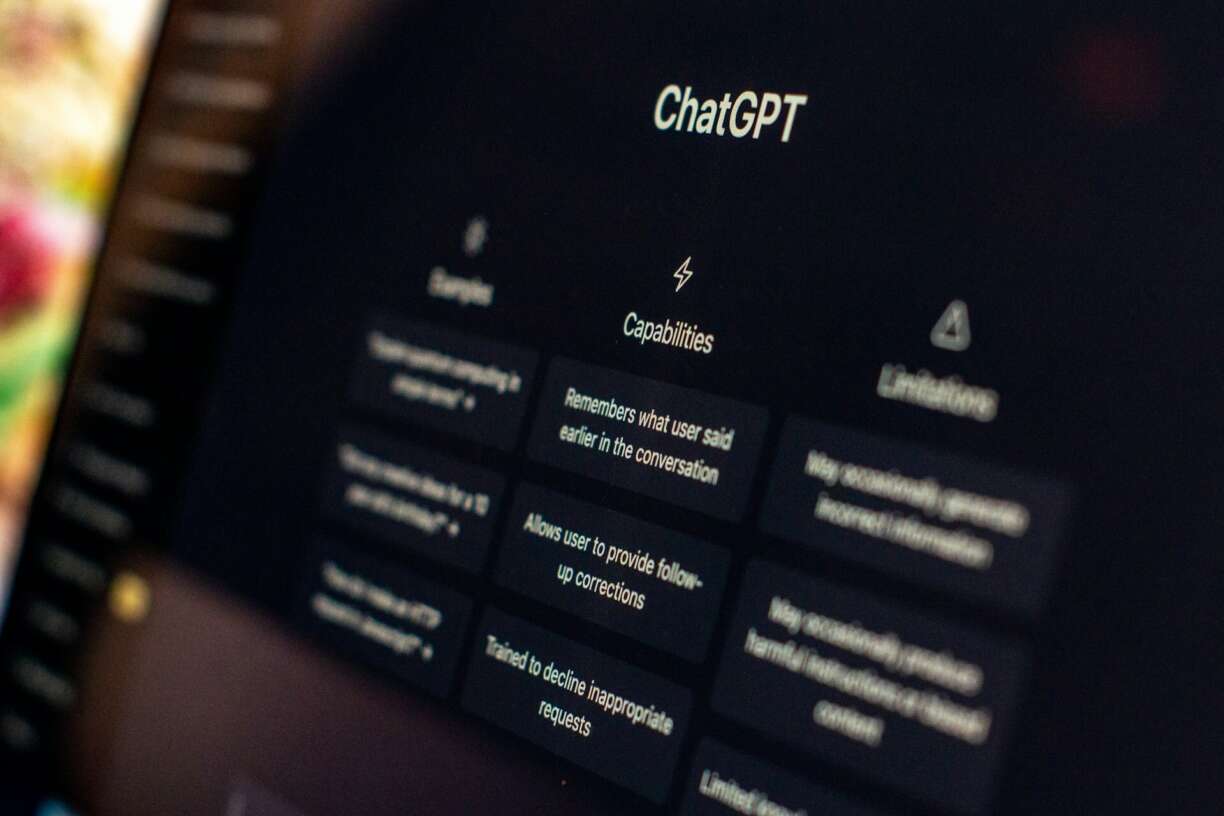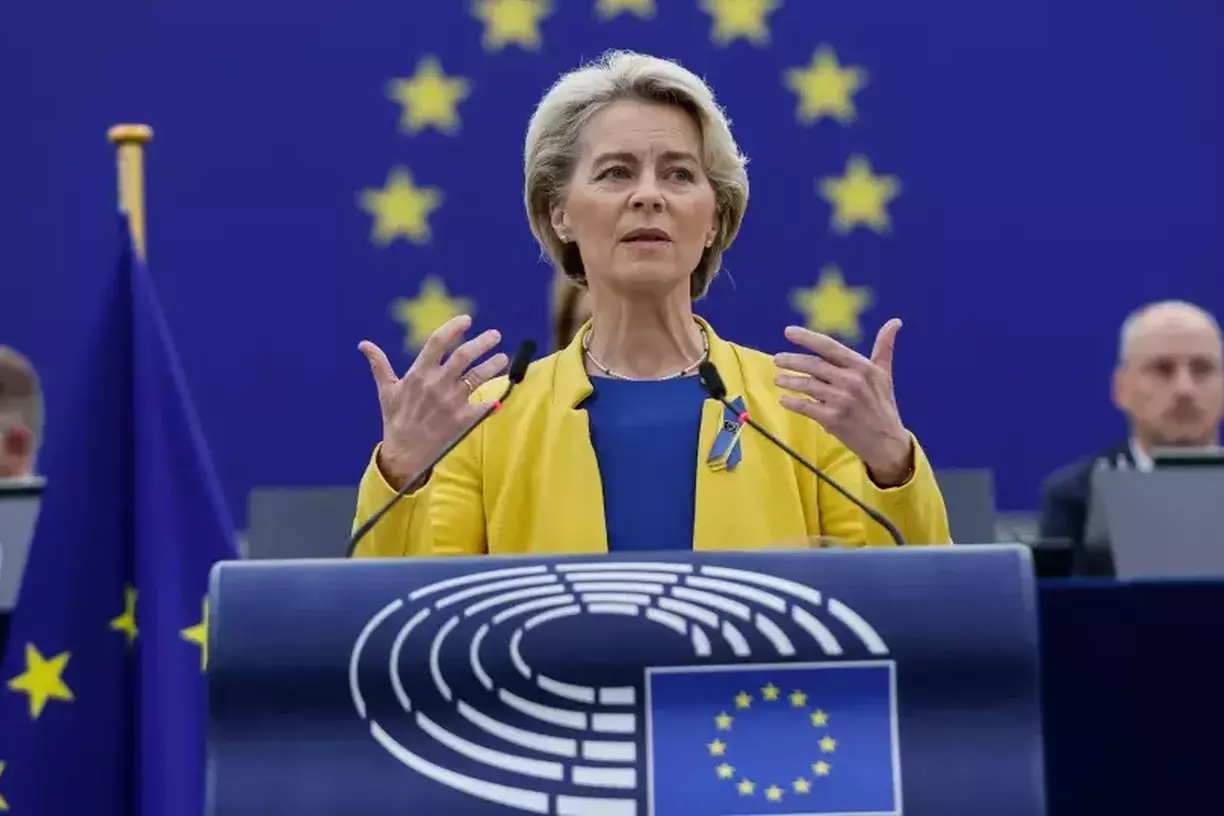April 29, 2025
Observatory on Information Democracy’s report launch: evaluating policy recommendations in the Dutch context

The Observatory on Information and Democracy recently published its report on Information Ecosystems and Troubled Democracy, offering a critical assessment of the state of knowledge on news media, AI and data governance. In collaboration with the AI, Media & Democracy Lab, AlgSoc hosted a launch event at the Institute for Advanced Study in Amsterdam. The event brought together researchers from various disciplines, media representatives, and members from Dutch administrative bodies. It served as an opportunity to present the report, gather feedback, and discuss perspectives from both the Dutch and broader EU contexts.
The Observatory on Information and Democracy (OID) is an initiative of the Forum on Information and Democracy, a Paris-based civil society organisation committed to upholding public values such as transparency and political neutrality. In this highly transitional period marked by rapid technological development and global political unrest, including attacks on knowledge institutions, the OID emphasises the importance of community exchange and mutual support.
During the event, members of OID discussed a key section of the report and offered the attendants an opportunity to provide feedback before opening the floor up to discuss and evaluate policy recommendations in the Dutch context.
After introductory remarks, the discussion opened with remarks from Flavia Durach, who addressed structural power asymmetries between Big Tech and news media in the digital media ecosystem. She highlighted research findings showing that digital platforms are undermining news media and contributing to a broader decline in public trust in news institutions.This trend poses a direct threat to democracy, disproportionately affecting low-income countries with limited press freedom and weaker local news media presence. Flavia encouraged and called for coalitions between stakeholders, both local and international, to counter Big Tech’s power and enhance accountability and transparency.
Responding to Thomas Poell’s explanation of platform power and network effects, Robin Mansel stressed the need to rethink our underlying assumptions. Network effects are often perceived as inevitable, but in reality this inevitability depends on how markets are governed. This rigid assumption hides the possibility of alternatives to monopolistic (market) structures and dominant network effects.
A key issue for policymakers is addressing power asymmetries. Robin Mansell also observed challenges in monitoring of human rights violations and digital inclusion, emphasising theneed for accountability and concretisation. Her key message: overcoming constrained imaginations, we must rethink data governance and democratic processes now more than ever. Natali Helberger added that it’s crucial to shift from a technology-centric to a society-centric research approach, placing the focus on societal implications rather than just technological advancements.
During the roundtable discussion, tensions were identified stemming from economic dependencies and structural power asymmetries. While bottom-up initiatives aiming at more inclusive, ethical, nuanced AI applications exist, many struggle with funding or outreach. Meanwhile, top-down legislation is necessary but remains slow, hindered by the speed of technological development. In the Dutch context, national legislation follows broader EU regulatory initiatives, which further pose challenges in bridging local and international approaches.
Core discussion points:
- Where is the potential for collaborative approaches to happen? To what extent can data and resource sharing mitigate some of the (epistemic) resource disparities?
- Companies do not necessarily want to rely on the big models like ChatGPT, but they want the most effective models. How can local alternatives be offered?
- How do we balance local, short-term solutions with collaborative long-term legislation?
The key takeaway from this discussion was the need to facilitate collaboration r and building solidarity across local and international communities of researchers, public and private partners, to think through these complex topics together. Academics must also increasingly engage with practices to translate research into actionable outcomes for legislation and the industry. We should strive for an ecosystem that fosters innovation, ensures media freedom, and empowers local, grassroots initiatives. Lastly, it is crucial to bridge conceptions of nuanced, multi-faceted issues with the realities of economic constraints for news organisations.
More results /
 Je medisch dossier inladen in nieuwe functie ChatGPT? Denk 10.000 keer na
Je medisch dossier inladen in nieuwe functie ChatGPT? Denk 10.000 keer na
By Natali Helberger • January 19, 2026
By Roel Dobbe • November 24, 2025
By Roel Dobbe • November 12, 2025
 Combatting financial crime with AI at the crossroads of the revised EU AML/CFT regime and the AI Act
Combatting financial crime with AI at the crossroads of the revised EU AML/CFT regime and the AI Act
By Magdalena Brewczyńska • January 16, 2026
By Sabrina Kutscher • July 02, 2025
By Natali Helberger • March 06, 2025
By Maurits Kaptein • June 06, 2025
By Leonie Westerbeek • November 22, 2024
 Clouded Judgments: Problematizing Cloud Infrastructures for News Media Companies
Clouded Judgments: Problematizing Cloud Infrastructures for News Media Companies
By Agustin Ferrari Braun • January 29, 2026
By Fabio Votta • November 05, 2025
By Ernesto de León • Fabio Votta • Theo Araujo • Claes de Vreese • October 28, 2025




